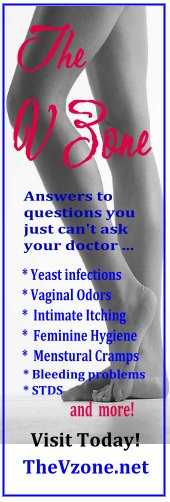Research shows a new benefit to using HRT - but it's still not right for every woman. Here's what you need to know ...
By Colette Bouchez
If you’re still on the fence about hormone replacement therapy (HRT) or considering it now for hot flashes and other symptoms of menopause, there is some interesting news to consider.
New research suggests that HRT as well as the use of oral contraceptives - may help protect against the formation and rupture of brain aneurysms in women.
In a first-of-its-kind study by experts from Rush University Medical Center in Chicago, Dr. Michael Chen and colleagues determined that the use of hormonal contraceptives, as well as the use of HRT appeared to have a neuroprotective effect that ultimately reduced the risk of brain aneurysms in post menopausal women – a group that, in general, are at increased risk for this problem.
"By understanding the potential link between low levels of estrogen and aneurysms, we can focus our areas of study with the hope of providing women who are at risk for brain aneurysms with preventative therapies," said Chen, who also is assistant professor of neurology, neurosurgery and radiology at Rush University.
A brain aneurysm occurs when an artery inside the head bulges outward, forming a kind of “bubble” that pushes up through the surface of the vessel. The bubble in and of itself is not dangerous but the risk of rupture is high. When this occurs bleeding into the brain results dramatically increasing the risk of s hemorrhagic stroke, and ultimately brain damage and even death.
Experts say 1 in 15 people in the US will develop a brain aneurysm , with women affected far more often than men. And in fact, the observation that post menopausal women seemed at greater risk was part of the impetus for the new study.
Indeed, while looking at results from the two largest brain aneurysm trials to date, Chen and colleagues noted that brain aneurysms appeared to occur most frequently in post menopausal women. In fact, the research showed that 70 percent of these aneurysms occurred in post menopausal women around age 52 – and that the neurologic events appeared to coincide with a severe drop in estrogen occurring at roughly the same time.
To help further elucidate a connection between aneurysms and estrogen, Rush researchers studied a group of 60 women aged 31 to 80 between the years 2008 and 2010 . Sixty five percent of the women in the study had unruptured aneurysms while 35% had been previously treated for ruptured aneurysms.
During this observational study the doctors compared a variety of factors between their two groups of women and a control group of 4,682 women. These factors included gynecologic history, used of oral contraceptives and use of HRT. Other variables included their BMI or body mass index, their age of first menstrual period, a woman’s age at the birth of her first child, and the age during which they began to experience menopause symptoms.
In comparing the groups – women with aneurysms to women without – doctors noted that most of the variables seemed evenly distributed. The only significant difference to pop from the study results was the use of oral contraceptives and/or HRT.
How HRT Reduces Aneurysm Risk
More specifically the study reported that the rate of oral contraceptive use in the control group was 77.6 percent, compared to just 60 percent in the study group. The use of HRT was just 23.7 percent in the group with aneurysms compared to 44.8 percent in the control group.
Moreover, the length of time these medications were used also seemed to differ. While women in the control group used hormone treatments for around 5 years, those in the study group who used them did so for less than half that time – roughly 2.6 years.
"These differences in the usage of estrogen modifying agents qualify as statistically significant and indicate that women with brain aneurysms use oral contraceptives and hormone replacement therapy less frequently than the general population," said Chen.
Chen adds that it’s reasonable to conclude that the drops in estrogen occurring each month during the menstrual period, and more significantly, the lasting drop that occurs at menopause may be one reason why women in general, but particularly post-menopausal women are at greater risk for brain aneurysms.
The study authors further conclude that stabilizing estrogen levels with HRT may play a protective role in women who are at risk for aneurysms, says Chen. Study results were recently presented at the 7th Annual Meeting of the Society of Neurointerventional Surgery.
HRT And Your Health: What You Should Know
As impressive and important as this new research is, it’s important to point out that the use of traditional HRT has been shown to increase the risk of a number of other significant health issues. According to the massive WHI – Women’s Health Initiative Study – HRT caused a 26% increase in invasive breast cancer, a 20% increase in heart attacks, a 41% increase in the risk of stroke and 100% increase in the risk of blood clots in the lungs. Other studies have shown that women who used HRT had roughly twice the risk of developing dementia.
So, what’s the answer? Individual care. Indeed, as I have detailed in my book Your Perfectly Pampered Menopause, as new studies continue to emerge revealing both the pros and cons of hormone use there is only one “voice of reason” that should prevail. And that voice is saying “ When it comes to HRT there is no “One Size Fits All.” Indeed, much like the one-size-fits-all panty hose which, quite frankly never fit anybody right, one-size-fits-all hormone use is not the way to go.
Certainly for some women – particularly those at risk for aneurysm ( if there is a family history, for example, or one or more aneurysms have already been detected) the benefits of hormone therapy may certainly outweigh the risks. But for those at greater risk for a heart attack or breast cancer, for example, the neuroprotective benefits of HRT may be less than stellar.
The key: Finding a doctor who is willing to treat you as an individual – and what’s more willing to treat the “whole woman” and not just your body parts.
Only when you can take this comprehensive, whole-body approach to post menopausal health care can you really begin to determine the treatments – including the hormone treatments – that are right for you.
For more information on individual treatments for menopause check out YourMenopause.com .For the latest beauty and style advice for women over 40 subscribe to RedDressDiary.com - IT'S FREE! And be sure to check out CheapChicDiary.com for money-saving beauty and style tips!
Copyright by ElleMedia Network 2010 - All Rights Reserved. In addition to US Copyright, the text of this RedDressDiary article is licensed under a Creative Commons Attribution-ShareAlike 3.0 License. All formatting and style elements of this page are not available under this license, and Colette Bouchez retains all rights in those elements. The authors and/or owners of this blog may benefit either directly or indirectly from products mentioned in these posts and in the advertising on these pages.





































No comments:
Post a Comment